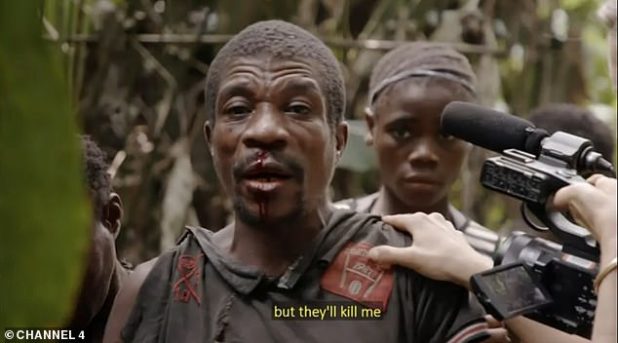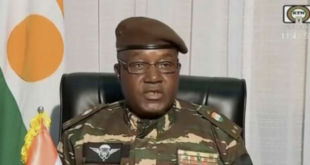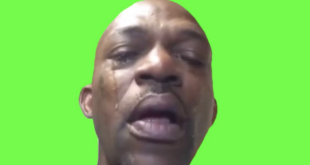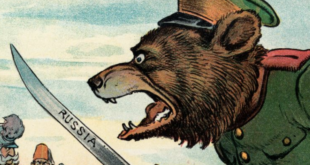Pomidor Quixote
Daily Stormer
July 17, 2019
People keep getting surprised by blacks acting black in black countries.
A British documentary maker has revealed her shock at being caught up in an explosive tribal conflict in the Congo.
Livia Simoka, from London, admitted she was ‘naive’ about how deep the troubles ran before arriving in Bonguindo, where she stayed for five months with the Mbenejli.
She was shocked to discover their treatment by rival village Bantu, who claim that they ‘own’ Mbenejli families and compare the people to animals who live in dirty squalor.
Livia even witnessed a violent conflict between two men from the rival tribes – and when one man attempted to drag another off into the jungle, she intervened, prompting viewers to praise her ‘bravery’.
Keep in mind that they did that knowing that they were being filmed and observed by foreigners.
The drama played out on Monday night’s episode of Extreme Tribe, The Last Pygmies, on Channel 4.
The dispute occurred between two remote tribes called the Bantu – a farming and trading people with access to modern technology – and the Mbenejli, who are less advanced and rely on hunter-gatherer survival tactics.
Only another African tribe can be less advanced than an African tribe.
Livia watched on as a Bantu man called Prince attacked a Mbenejli man called Mondonga, shouting ‘I will stab him’ and ‘I swear he must be killed.’
Prince then walked down a jungle path, dragging Mondonga by the shirt, while shouting ‘he should know I’m the bad man’.
While dragging Mondonga along, Prince turned around and sucker-punched him hard in the face.
Mondonga’s wife could be heard screaming: ‘I beg you, don’t beat him. Don’t beat him I beg you. Do you want to kill Mondonga?’
Another Mbenejli managed to stop the confrontation, allowing Livia to catch up with Mondonga, whose face was covered in blood.
He told her that he needed to go back to the village, but was afraid that Prince and his brother-in-law Loris were going to kill him.
Livia told Mondonga to head back to the village, before noticing that Prince was heading in the same direction.
It was at that point that Livia decided to step in and talk to Prince in the hopes of warding off further violence.
‘Just stay back a minute, just stay back,’ she told Prince. ‘Just calm down for a minute. Because things will get worse. If you go back now a fight’s going to start.’
‘Just f****** chill out for a little bit,’ she added.
Prince revealed that the issue was about a debt that Mondonga’s son owed his brother-in-law.
He said: ‘Mondonga is to blame for many of the problems I have. He has to explain the problems to Loris.
‘Loris lent Mondonga’s son three packs of marijuana and five cigarettes. Mbeneji people don’t pay back very easily.’
Five cigarettes! He didn’t pay back! You can’t blame this Prince black for wanting Mondonga to pay back in blood.
Blacks are pretty reasonable.
He added: ‘I don’t own Mondonga, but he is married to Mosengi and she is mine. I own all of that family.
Wait. What does he mean he owns all of that family? He’s not a white devil, so how can he own someone?
Could it be that blacks enslave blacks even today?
Could it be that slavery was never a white people thing?
‘Akaya’s family is directly mine. They are like animals. Look at their houses. Our clothes are clean and theirs are dirty, they can wear their clothes for many days.‘
That’s actually not a bad argument.
Livia admitted being ‘naive’ about the extent of the trouble between the two tribes, and said she was ‘so shocked’ at how the Bantu behaved towards the Mbeneji.
‘I’m honestly so shocked that someone like Prince can get away with beating people and that it’s a completely acceptable way of life.’
What did she expect? It’s Africa!
People in the West have a romanticized idea of blacks that is propelled by the media, and which is much different from what blacks actually are. Even African-“Americans,” despite all of their violent crime and trouble-making, are not even close to African levels of authenticity. The less whites that there are around to police black behavior, the more the actual nature of blacks manifest.
This nature of them is characterized by constant misery. As the number of blacks increase, violence and hunger also increase. Haiti, Brazil, and African countries are examples of that.
For some hand-rubbing reason, witnessing blacks in their natural environment doing their natural violent activities makes white people want to help and to flood the West with these apes.
It should have the opposite effect, but society has been turned upside down.
 Daily Stormer The Most Censored Publication in History
Daily Stormer The Most Censored Publication in History





